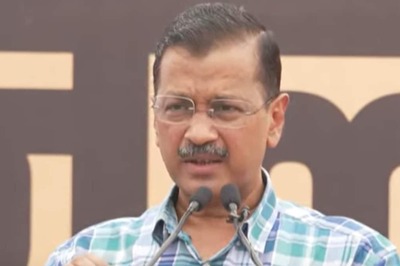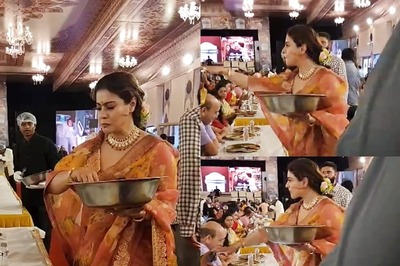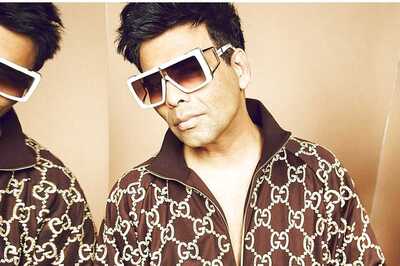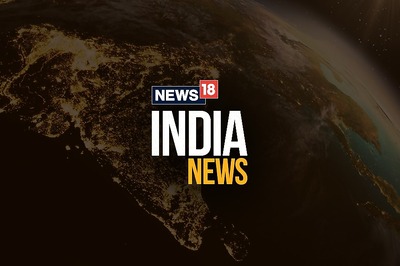
views
Pre-existing medical conditions, long hours of fasting, unhealthy eating and ignorance about prevailing heart issues could be reasons why multiple heart attack fatalities have been reported at garba events in Gujarat.
According to several news reports, at least 10 deaths due to heart attacks have been reported at garba events across Gujarat in a day, the youngest just 17 years old. The teen, identified as Veer Shah, suddenly took ill while playing garba at an event in Kapadvanj town of Kheda district. Reports said his nose started bleeding and he was immediately rushed to a hospital.
He was, however, declared dead due to a heart attack. His family later issued an appeal to the public: “Don’t play garba for long stretches of time without taking a break. I lost my son today. I hope the same does not happen to anybody else."
Similar cases, including deaths of people in their 20s, have been reported from Ahmedabad, Rajkot and Navsari.
How does someone so young die of cardiac arrest or heart attack
The prevalence of heart diseases and heart attacks in India is on the upswing, attributed to a variety of factors, including post-Covid complications, air pollution, and unhealthy lifestyles. This surge has resulted in a shift from older individuals to a younger demographic being affected.
“We are seeing more and more young patients coming with increasing rates of heart attacks," Dr Zeeshan Mansuri, a consultant interventional cardiologist at Narayana Hospital, Ahmedabad, told News18. “Earlier 1 out of 10 patients was less than 30 years of age, but now we are seeing around 3 out of 10 patients aged less than 30 years."
Dr Bimal Chhajer, senior cardiologist and director, SAAOL Heart Centre, New Delhi, too said he is seeing both youngsters and middle-aged people, and not just the elderly, coming to the OPD with various symptoms.
Chhajer, a former consultant at AIIMS, said earlier 10% patients who came in complained of very severe symptoms, blocked arteries and cardiac arrest or cardiac strain, but the percentage has now escalated to almost 25%.
How Playing Garba Could Have Led to Heart Attack
Sudden heart attacks during physical activities like garba can have various causes, including pre-existing medical conditions, physical exertion, and even environmental factors, experts said.
“Engaging in sports and dance activities, particularly during high-intensity events like garba, can potentially exacerbate underlying health conditions, increasing the risk of heart-related problems, including heart attacks and failure," Mansuri from Ahmedabad said.
Many participants, including youngsters, may unknowingly carry risk factors like high blood pressure or diabetes, making them susceptible to cardiac issues during these physically demanding festivities.
“It’s important for individuals to be aware of their health, stay hydrated, and not push their physical limits during such celebrations," Dr Debdatta Majumdar, cardiology consultant at NH RN Tagore Hospital in Kolkata, advised.
Dr Udgeath Dhir, director and head of cardiothoracic and vascular surgery, Fortis Memorial Research Institute, Gurugram, explained that in some cases, young people can experience sudden cardiac arrest due to factors like family-related heart conditions or irregular heart rhythms, especially when they are under extreme emotional or physical stress. “It can increase the risk of dangerous heart rhythms and death."
This problem can get worse when there is an imbalance in the body’s electrolytes, which can occur during activities like dancing or exercising. “During normal working or daily activities, these don’t pose any problems or symptoms and hence go unnoticed."
Chhajer from the SAAOL Heart Centre said he has observed a “significant rise in the number of patients seeking medical attention for heart-related issues during festival season". Their top complaints are shortness of breath or chest pain.
“Dehydration, poor eating practices, and excessive physical activity are a few contributing factors. During these festivities, the heat and excessive activity might cause cardiac strain."
He suggested that to lower the risk of heart-related problems, attendees, especially youngsters, must stay hydrated, pace themselves, and refrain from consuming an excessive amount of high-sugar or high-fat foods during these celebrations.
What Should be Done to Avoid Such Incidents
According to Dhir from Fortis, human bodies give frequent warning signs, but we tend to ignore them, make excuses, or succumb to peer pressure and end up avoiding regular check-ups. “Ignoring signals from our bodies such as discomfort, excessive fatigue, coughing, nausea, and skipping check-ups, can contribute to cardiac arrests."
Other doctors, too, encouraged regular health check-ups.
“Also, quick access to medical assistance can also be crucial in preventing such incidents," said Majumdar from Narayana Hospital, Ahmedabad. “Timely intervention can not only avert minor heart issues from escalating into major cardiac events but also ensure the safety and well-being of participants."
Experts suggested that it is essential to raise awareness about potential risks associated with over-exertion and stress during such celebrations. Recognising early signs of heart problems, such as chest pain or breathlessness, is crucial as well.
Experts recommend arranging health check-ups before the festival season to people at greater risk can be identified and offered personalised guidance on how to enjoy the celebrations safely.
“In the realm of heart health, quick access to medical assistance can be a pivotal game-changer when it comes to saving lives," Mansuri said. “The presence of medical professionals and defibrillators at events like garba is also important as they can be life-saving in emergencies."




















Comments
0 comment